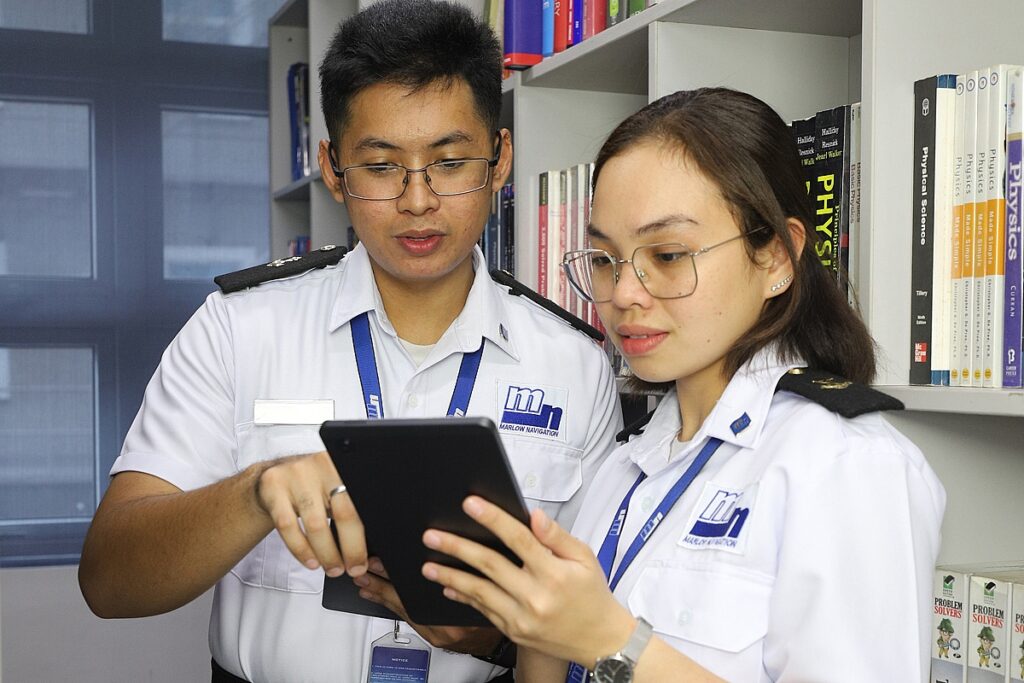Marlow Navigation introduces new Continuous Proficiency Development (CPD) project for deck and engine ratings to be promoted to officers.

To help meet increasing demand for officers as well as support seafarer career advancement, Marlow Navigation has introduced a new 5-week Continuous Proficiency Development (CPD) project for deck and engine ratings to be promoted to officers.
The project aims to further build expertise, knowhow and skills of experienced ratings with aptitude, and who are willing and motivated to advance their career. The specialised training is crucial to ensure smooth transition and effective performance in their upgraded role as operation level officers.
By providing targeted training programmes focusing on advanced technical skills, leadership, and maritime regulations, ratings will be supported in enhancing their competencies and adapting to the increased responsibilities associated with operational level officer positions. The CPD programme overall consists of several modules over a 4-5-week period for each department.
“Ongoing assessments and feedback mechanisms have also been implemented to monitor progress and address any areas that might need adjustment/improvement, ultimately contributing to a highly-skilled and knowledgeable workforce for the maritime industry,” states Training Director, Marlow Navigation, Joern Clodius.
These new training projects for deck and engine ratings follow the success of the CPD for Operational Level Officers to be promoted to Management Level, and for promotion to Chief Engineer and Master, both running at Marlow for some years.
Further to this initiative, a new Digital Onboard Training System (DOTS) for cadets has been introduced, using the company’s Learning Management System (LMS) platform and personalised tablets to facilitate remote learning possibilities. The implementation of DOTS for shipboard training will accelerate the learning process and overall performance on board. It will also improve monitoring, able to easily follow and supervise the progress of training and guide cadets from a distance accordingly.
“The training methods in our industry have evolved significantly over the past decades. We have transitioned from conventional classroom-based approaches to more contemporary methods, such as blended learning, the flipped classroom model, and digital learning,” explains Marlow’s Training Consultant in the Philippines, Captain Peter Grunau. “This shift has opened new doors and allows for a more dynamic and interactive learning experiences, catering to diverse styles and preferences in today’s fast-paced world,” he adds.
A multitude of supportive features will help enhance the overall learning experience. For instance, by using the group function via the LMS, cadets can communicate with classmates to discuss problems and solutions. Similarly, communication with instructors, especially with video conference can also be conducted from the cadets’ cabin or any other location on board, providing Internet access is available.
There’s also a grading system which is visible for all cadets and instructors. Comments, recommendations, guidance and corrections for tasks can be seen by cadets and they can adjust the learning process accordingly, and if required by the instructor to resend.
Other key advantages include the ability to conduct tasks as per the cadets’ own schedules, both online as well as offline, greater efficiency with material preparation and reviewing, submitting individual task online via the tablet therefore intensifying the pace of learning, accessibility, and not interfering with the shipboard communication systems. Furthermore, designated training officers on board also have access to handouts and required material for various lessons, allowing them to assist in the learning and training process.







No Comments
Sorry, the comment form is closed at this time.